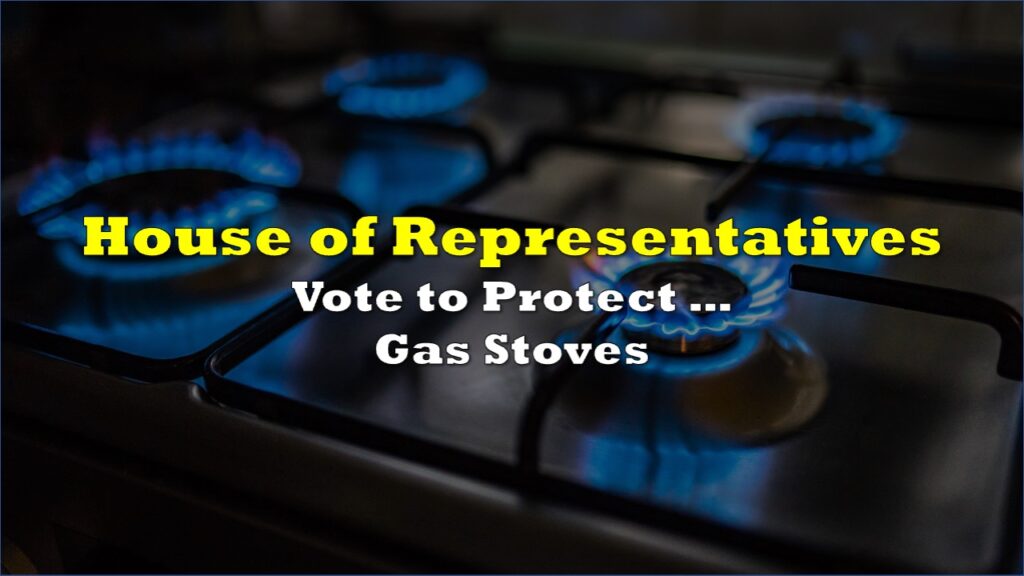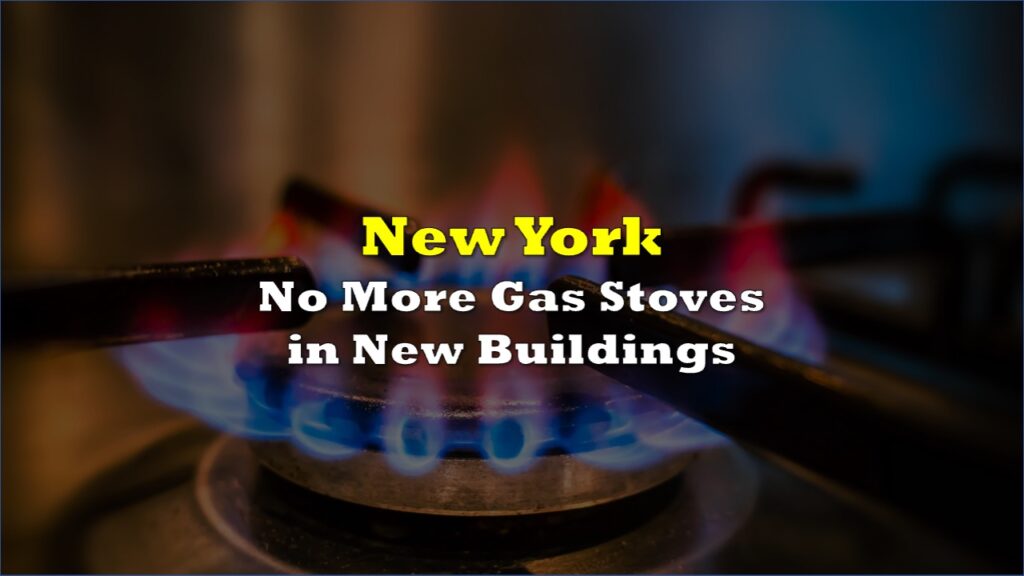The US Consumer Product Safety Commission (CPSC) Chair Alexander Hoehn-Saric issued a clarification on Thursday about the circulating news that the agency is coming up with a plan to ban gas stoves.
“Research indicates that emissions from gas stoves can be hazardous, and the CPSC is looking for ways to reduce related indoor air quality hazards,” Hoehn-Saric said in a statement. “But to be clear, I am not looking to ban gas stoves and the CPSC has no proceeding to do so.”
BREAKING: The chair of the Consumer Product Safety Commission says the agency has no plans to ban gas stoves after commissioner Richard Trumka’s remarks ignited a political firestorm. pic.twitter.com/t18eRDlSdg
— Ari Natter (@AriNatter) January 11, 2023
This follows earlier reports saying the commission intends to prohibit gas stoves due to growing concern about the dangerous indoor air pollutants released by the equipment.
“This is a hidden hazard,” Richard Trumka Jr., an agency commissioner, said in an interview. “Any option is on the table. Products that can’t be made safe can be banned.”
According to reports by groups such as the Institute for Policy Integrity and the American Chemical Society, natural gas stoves emit air pollutants such as nitrogen dioxide, carbon monoxide, and fine particulate matter at levels the EPA and World Health Organization have said are unsafe and linked to respiratory illness, cardiovascular problems, cancer, and other health conditions. Gas stoves are used in about 40% of homes in the United States.
A new peer-reviewed study published last month in the International Journal of Environmental Research and Public Health said that gas stove use is responsible for more than 12% of current childhood asthma diagnoses in the United States.
“There is about 50 years of health studies showing that gas stoves are bad for our health, and the strongest evidence is on children and children’s asthma,” said Brady Seals, co-author of the study. “By having a gas connection, we are polluting the insides of our homes.”

Does it matter?
According to the Association of Home Appliance Manufacturers, which represents gas range manufacturers such as Whirlpool Corp., cooking emits pollutants and hazardous byproducts regardless of the type of stove used.
“Ventilation is really where this discussion should be, rather than banning one particular type of technology,” said the association’s vice president Jill Notini. “Banning one type of a cooking appliance is not going to address the concerns about overall indoor air quality. We may need some behavior change, we may need [people] to turn on their hoods when cooking.”
Natural gas distributors, whose business is under threat from the expanding push to electrify households, claim that a ban on natural gas stoves would raise costs for homeowners and restaurants while providing little environmental benefit. According to the American Gas Association, which represents utilities such as Dominion Energy Inc. and DTE Energy Co., there are no documented concerns from gas stoves, according to regulatory and advisory authorities in charge of protecting home customer health and safety.
“The U.S. Consumer Product Safety Commission and EPA do not present gas ranges as a significant contributor to adverse air quality or health hazard in their technical or public information literature, guidance, or requirements,” said Karen Harbert, the group’s president. “The most practical, realistic way to achieve a sustainable future where energy is clean, as well as safe, reliable and affordable, is to ensure it includes natural gas and the infrastructure that transports it.”
A big climate spending measure enacted into law in August may provide some assistance to consumers who wish to move from gas to electric ranges. As part of $4.5 billion in financing to help low- and moderate-income households electrify their homes, the Inflation Reduction Act offers rebates of up to $840 for the purchase of new electric ranges.
Recipe for disaster
The independent US agency’s move stirred conversations online, with the Chair of the Senate Energy Committee, Democrat Senator Joe Manchin, calling it a “recipe for disaster.”
“The federal government has no business telling American families how to cook their dinner,” tweeted the senator from West Virginia, adding that he thinks the commission needs to be reevaluated.
If this is the greatest concern that the Consumer Product Safety Commission has for American consumers, I think we need to reevaluate the commission.
— Senator Joe Manchin (@Sen_JoeManchin) January 10, 2023
Taking the measure further, New York Governor Kathy Hochul is planning to make the state the first one to ban natural gas heating and appliances in new buildings.
“Buildings are the largest source of emissions in our state, accounting for a third of our greenhouse gas output,” Hochul said in her remarks.
NEW: Governor Kathy Hochul is proposing to make New York the first US state to ban natural gas heating and appliances in new buildings https://t.co/I9niSg7b2x
— Bloomberg (@business) January 10, 2023
The ban on natural gas stove will affect a huge chunk of the US households, from rural communities not fully and stably connected to the electric grid to apparently the White House occupants themselves.
Municipal gas service is the most reliable utility in the nation. Propane tanks in rural areas allow for appliances to operate when grid power goes down
— GW (@SurlMudgeon) January 9, 2023
Of course the feds want to get rid of that level of stability and independence. https://t.co/jr92Ppi9fN
Hey @Antoni, what are you cooking tonight? pic.twitter.com/otSh31u5E3
— Dr. Jill Biden (@DrBiden) September 2, 2020
At the House, Texas Rep. Ronny Jackson had strong words against the proposed ban, quipping “they can pry [his gas stove] from [his] cold dead hands.” New York Rep. Alexandria Ocasio-Cortez–known for her green legislative agenda–replied to the congressman claiming that exposure to nitrogen dioxide from gas stoves “is linked to reduced cognitive performance.”
You can read more about it here: https://t.co/JUgq1A4LaS
— Alexandria Ocasio-Cortez (@AOC) January 11, 2023
In a March 2022 report, the US Environmental Protection Agency said the average level in homes without combustion appliances is around half that of the level outside. Indoor emissions frequently exceed outdoor levels in homes with gas stoves, kerosene heaters, or unvented gas space heaters.
The agency deems nitrogen dioxide as a toxic gas and “a highly reactive oxidant and corrosive.”
Information for this briefing was found via Bloomberg and the sources mentioned. The author has no securities or affiliations related to this organization. Not a recommendation to buy or sell. Always do additional research and consult a professional before purchasing a security. The author holds no licenses.






